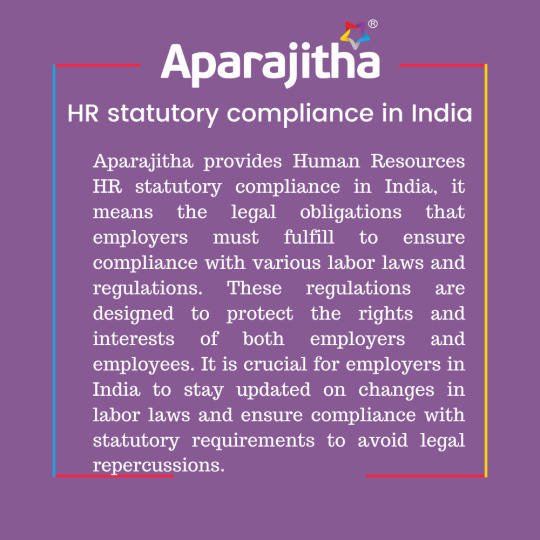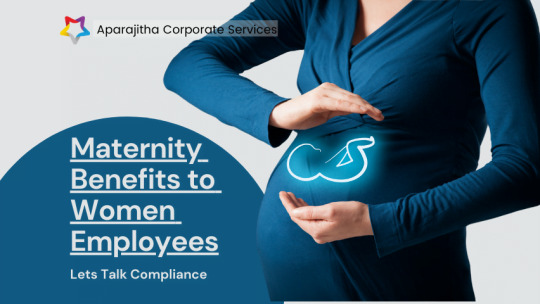#maternitybenefitsact
Text

Aparajitha provides Human Resources HR statutory compliance in India, it means the legal obligations that employers must fulfill to ensure compliance with various labor laws and regulations. These regulations are designed to protect the rights and interests of both employers and employees. It is crucial for employers in India to stay updated on changes in labor laws and ensure compliance with statutory requirements to avoid legal repercussions.
#contract labour compliance#labour law compliance#maternity leave#maternitybenefitsact#contractlabour#contract labour service
0 notes
Text
The amendment of the Maternity Benefits Act has very beneficial provisions for working women. But, the drafters of the amendment failed to consider the shortcomings of the Act. These inadequacies have been discussed in the suggestions. The amendment has brought the Indian legislation at par with the International legislations and taken the recommendations given by the 259th Law Commission report and the 2nd Commission on Labour, but they should study the provisions in various countries as well.
Like in Singapore, the state shares the burden with the employer for paying maternity benefits. As the full burden is now on the employer, they might be hesitant to hire more women employees. The Amendment is also not fully future-ready. This is because, although on one hand, it added provisions to enable employees to work from home, it did not consider the factor of paternity benefits.
Know more about the maternity benefits act in India
0 notes
Text
The Maternity Benefit Act provides that a woman will be paid maternity wages at the rate of her average daily wage. However, the woman needs to have worked for the employer for at least 80 days in the 12 months preceding the date of her expected delivery.
The Maternity Benefit Act originally provided maternity benefits of 12 weeks leave, out of which up to six weeks could be claimed before delivery. In 2017, the Act was amended to extend the period to 26 weeks’ leave, of which up to eight weeks of leave can be claimed before delivery.
Know the benefits extended by the ESI Act, 1948 for the ESI-covered women employees who should have contributed for at least 70 days in the preceding two contribution period to the expected delivery date.
0 notes
Text

Women employees are entitled to various maternity benefits under the Maternity Benefit Act, 1961 & ESI Act, 1948
Ensuring Zero Hindrance for Women’s Participation in the Workforce
To monetarily support women employees during pregnancy and after childbirth, Indian law makes it mandatory for the applicable establishments to offer due maternity benefits to women employees. The Maternity benefits in India are mainly governed by the Maternity Benefit Act, 1961 (for non-ESI employees) & Employees’ State Insurance Act, 1948, as per these Act applicability to the Establishments, Factories, and Mines.
Employers are required to inform women in writing or electronically about the maternity benefits available under the Maternity Benefit Act upon their joining.
The law allows female employees to work from home in addition to the maternity benefit period if the nature of work allows that. Keep reading ….
0 notes